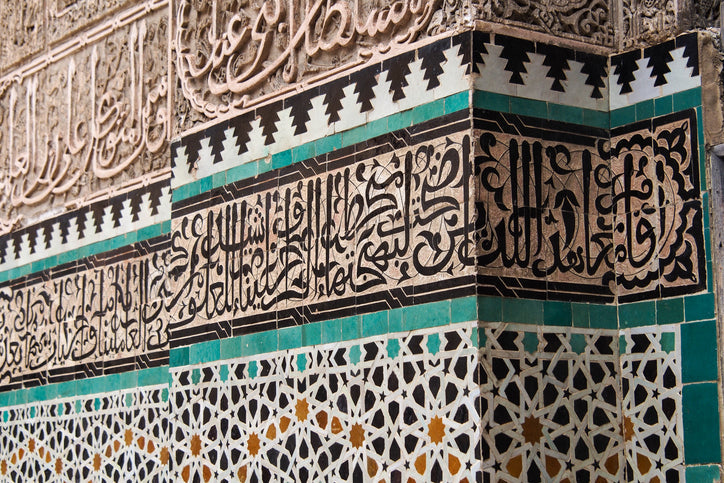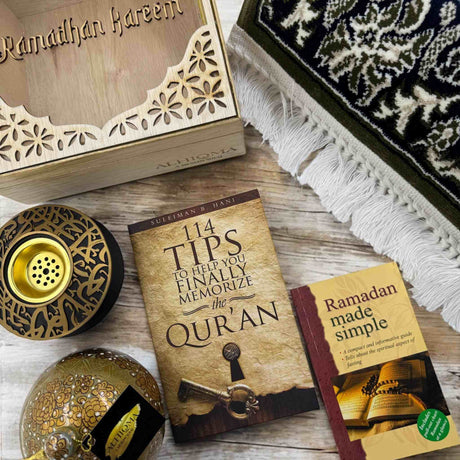Key Takeaways:
- Dua for Divine Mercy and Guidance: The dua made by the People of the Cave (Surah Al-Kahf, Ayat 10) teaches the importance of seeking Allah's mercy and guidance when faced with difficult situations, trusting that Allah will arrange our affairs.
- Divine Protection and Intervention: The verses that follow (Ayat 11-16) show how Allah responded to the dua by providing divine protection, increasing their faith, and guiding the People of the Cave through a miraculous event.
- Steadfastness and Faith in Allah's Plan: The story emphasizes that true faith involves standing firm in one's belief, even when challenged, and trusting that Allah will offer guidance and protection to those who call upon Him sincerely.
Make This Dua When All Doors Are Closed
Surah Al-Kahf, Ayat 10 in the Quran.
Here is the Dua in Arabic:
رَبَّنَا آتِنَا مِن لَّدُنكَ رَحْمَةً وَهَيِّئْ لَنَا مِنْ أَمْرِنَا رَشَدًا
(Rabbana atina min ladunka rahmatan wahayyi lana min amrina rashada)
This Dua was made by the people of the cave, asking Allah for His mercy and guidance in their difficult situation.
Meaning: Our Lord, grant us from Yourself mercy and prepare for us from our affair right guidance.
رَبَّنَا آتِنَا مِن لَّدُنكَ رَحْمَةً
Rabbana atina min ladunka rahmatan – right away the Dua begins by asking from you, our Rabb, we ask for mercy.Seeking the mercy of Allah continually throughout the day and if your genuine your heart will soften and Allah will be forgiving.
وَهَيِّئْ لَنَا مِنْ أَمْرِنَا رَشَدًا
Wahayyi lana min amrina rashada
This part of the Dua asks Allah to arrange their affairs and grant them guidance.. This ayah is a portion of the Dua made by the people of the cave asking for Allah to arrange their affairs and grant them guidance.
In Surah Al-Kahf, Ayat 11-16, the Quran narrates the events that followed the dua made by the people of the cave, also known as Ashab al-Kahf (the Companions of the Cave). Here's a detailed explanation of these verses:
Ayah 11:
فَضَرَبْنَا عَلَىٰٓ ءَاذَانِهِمْ فِى ٱلْكَهْفِ سِنِينَ عَدَدًا
Translation: "So We cast [a cover of sleep] over their ears within the cave for a number of years."
Explanation: After the young men made their dua seeking Allah's mercy and guidance, Allah caused them to fall into a deep sleep in the cave for many years. This sleep was a divine intervention to protect them from their enemies.
Ayah 12:
ثُمَّ بَعَثْنَـٰهُمْ لِنَعْلَمَ أَيُّ ٱلْحِزْبَيْنِ أَحْصَىٰ لِمَا لَبِثُوٓا۟ أَمَدًا
Translation: "Then We awakened them to know which of the two parties was most accurate in calculating how long they had remained."
Explanation: After many years, Allah awakened them to test which of the two groups (among themselves or the people outside) could accurately calculate the time they had spent in the cave.
Ayah 13:
نَحْنُ نَقُصُّ عَلَيْكَ نَبَأَهُم بِٱلْحَقِّ ۚ إِنَّهُمْ فِتْيَةٌ ءَامَنُوا۟ بِرَبِّهِمْ وَزِدْنَـٰهُمْ هُدًىۭ
Translation: "We relate to you their story in truth. Indeed, they were youths who believed in their Lord, and We increased them in guidance."
Explanation: Allah mentions that these were young men who had firm faith in their Lord, and as a reward for their faith, Allah increased their guidance. The story is shared in the Quran as an example of faith and divine protection.
Ayah 14:
وَرَبَطْنَا عَلَىٰ قُلُوبِهِمْ إِذْ قَامُوا۟ فَقَالُوا۟ رَبُّنَا رَبُّ ٱلسَّمَـٰوَٰتِ وَٱلْأَرْضِ لَن نَّدْعُوَا۟ مِن دُونِهِۦٓ إِلَـٰهًۭا لَّقَدْ قُلْنَآ إِذًۭا شَطَطًا
Translation: "And We made firm their hearts when they stood up and said, 'Our Lord is the Lord of the heavens and the earth. Never will we invoke besides Him any deity. We would have certainly spoken, then, an excessive transgression.'"
Explanation: Allah strengthened their hearts with courage and conviction. They declared their belief in the Oneness of Allah, rejecting the worship of any other deity. This statement highlighted their strong faith and refusal to compromise their beliefs despite the risks.
Ayah 15:
هَـٰٓؤُلَآءِ قَوْمُنَا ٱتَّخَذُوا۟ مِن دُونِهِۦٓ ءَالِهَةًۭ ۖ لَّوْلَا يَأْتُونَ عَلَيْهِم بِسُلْطَـٰنٍۭ بَيِّنٍۢ ۖ فَمَنْ أَظْلَمُ مِمَّنِ ٱفْتَرَىٰ عَلَى ٱللَّهِ كَذِبًا
Translation: "These, our people, have taken besides Him deities. Why do they not bring for [worship of] them a clear authority? And who is more unjust than one who invents about Allah a lie?"
Explanation: The young men criticized their people for worshipping false deities without any evidence or justification. They emphasized that fabricating lies about Allah is the greatest injustice.
Ayah 16:
وَإِذِ ٱعْتَزَلْتُمُوهُمْ وَمَا يَعْبُدُونَ إِلَّا ٱللَّهَ فَأْوُوا۟ إِلَى ٱلْكَهْفِ يَنشُرْ لَكُمْ رَبُّكُم مِّن رَّحْمَتِهِۦ وَيُهَيِّئْ لَكُم مِّنْ أَمْرِكُم مِّرْفَقًا
Translation: "And when you have withdrawn from them and that which they worship other than Allah, retreat to the cave; your Lord will spread out for you of His mercy and will prepare for you from your affair facility."
Explanation: The young men decided to leave their community to protect their faith and seek refuge in the cave. They trusted in Allah's mercy, believing that He would provide them with ease and guidance in their situation.
These verses illustrate how Allah responded to their Dua by protecting them, increasing their faith, and providing them with divine guidance, showing the power of sincere supplication and unwavering faith.
Frequently Asked Questions:
Q: What does the dua in Surah Al-Kahf, Ayat 10, signify?
A: The dua made by the People of the Cave in Ayat 10 is a supplication for Allah’s mercy and guidance. It serves as a powerful reminder to believers that when all doors seem closed, they should turn to Allah, seeking His divine mercy to ease their affairs and grant them the right path.
Q: How does Ayah 11 demonstrate Allah’s divine intervention?
A: In Ayah 11, Allah caused the People of the Cave to fall into a deep sleep as a means of divine protection. This sleep lasted for many years, safeguarding them from the threats they faced, showing Allah’s power to intervene and protect those who sincerely seek His help.
Q: How does the story of Ashab al-Kahf illustrate the importance of steadfast faith?
A: The story illustrates that the People of the Cave maintained strong faith in Allah despite societal pressure to worship false gods. In Ayah 14, Allah strengthened their hearts, giving them the courage to publicly proclaim their belief in His Oneness. Their unwavering faith led to divine intervention and protection.
Q: What lesson can be derived from Ayah 15?
A: Ayah 15 highlights the injustice of associating partners with Allah, as the young men condemned their people’s idolatry. It teaches believers the importance of standing firm against falsehood and remaining committed to the truth, even when it is unpopular or dangerous.
Q: What role does trust in Allah’s plan play in Ayah 16?
A: In Ayah 16, the People of the Cave decided to leave their community to preserve their faith. They placed their trust in Allah, seeking His mercy and believing that He would provide ease and guidance. This ayah highlights the importance of taking steps to protect one's faith and trusting in Allah’s plan for success and protection.












